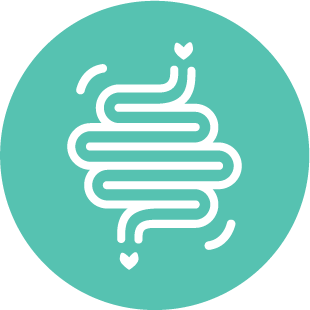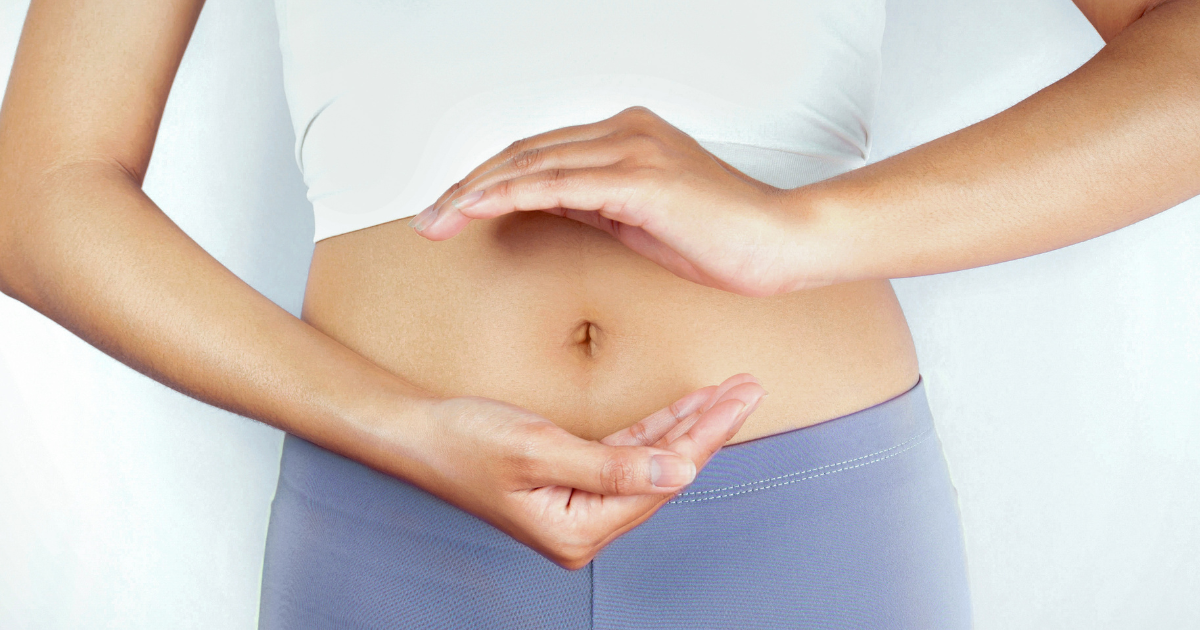What is Probiotic Yeast?
Probiotics are live microorganisms that provide numerous health benefits when consumed. Probiotic yeasts and bacteria can naturally improve our well-being and target specific health issues and needs in many different ways.
Our bodies host a vast community of microorganisms, including bacteria, fungi, viruses and other microbes, collectively known as the microbiota. The presence of commensal fungal species in the human gut suggests that microorganisms from this kingdom, such as yeasts, have significant potential to benefit the host.
Yeasts like Saccharomyces cerevisiae (S. cerevisiae) can form an important part of the human microbiome as probiotics. Numerous pre-clinical and clinical trials have demonstrated the efficacy of these yeast strains as probiotics.
Discover our Biotic Yeasts at Vitafoods™ Europe. Visit us at booth #3G46.
What Are Probiotic Yeasts? What Role Do Probiotic Yeasts Play in Human Health?
Probiotic yeasts play a crucial role in improving digestive health by protecting and maintaining the normal microbiota of the human gut. Furthermore, they enhance immune function by stimulating the body’s natural defenses and supporting a balanced immune response.
There are several strains of S. cerevisiae that can function as probiotics. Although they share many genetic similarities, each strain exhibits specific phenotypic differences, providing distinct health benefits.
Saccharomyces boulardii (S. boulardii), a yeast strain isolated about a hundred years ago, stands out as the most well-characterized probiotic yeast. It has been used since the mid-20th century and findings have provided empirical evidence of its efficacy.
S. boulardii is particularly well-suited for the gut microenvironment due to its greater acid and heat tolerance. Additionally, this probiotic yeast can help alleviate occasional diarrhea and promote normal stools while traveling or during periods of stress, contributing to overall digestive comfort.
Recently, new strains of yeast have been identified for their probiotic properties. One example is the Saccharomyces cerevisiae CNCM I-3856 strain, discovered in the early 2000s.

S. cerevisiae CNCM I-3856 stands out as the only probiotic strain with significant efficacy in managing gastrointestinal pain. It provides relief from bloating and constipation, and helps decrease intestinal pathogens. This strain also modulates intestinal inflammation due to its strong anti-inflammatory potential.
This multifaceted approach makes S. boulardii and other strains valuable allies in maintaining overall digestive health, immune function, and well-being.
Finally, probiotic yeasts have the ability to migrate from the intestine to the vagina. For example, S. cerevisiae CNCM I-3856 helps balance and improve vaginal flora, enhancing protection against bacterial and yeast vaginosis, and supporting overall intimate health.
OUR PROBIOTIC YEAST RANGE

Lynside® S. boulardii
Biotics
Probiotic Yeast:Doctors and gastroenterologists know its high efficacy and prescribe it for decades to reduce occasional diarrhea and restore gastrointestinal flora.
Digestion & Gut
Wellness & Immune
 Microbiome Balance
Microbiome Balance Diarrhea Management
Diarrhea ManagementImmunity

ibSium®
Biotics
Probiotic Yeast: ibSium® (Saccharomyces cerevisiae CNCM I-3856) is a probiotic yeast clinically proven to support overall intestinal comfort, with more than 96% of consumers reporting a significant improvement of gut comfort.
Digestion & Gut
 Diarrhea Management
Diarrhea Management Digestive Comfort
Digestive Comfort Microbiome Balance
Microbiome Balance

Quatreflora™
Biotics
Probiotic Yeast: A new probiotic approach for women’s intimate health concerns, produced from a patented strain of Saccharomyces cerevisiae CNCM I-3856. Quatreflora™ is a probiotic yeast that balances and optimizes vaginal flora and protects against bacterial and yeast vaginosis.
Reproduction & Women’s
 Vaginal Care
Vaginal Care
Why Are Probiotic Yeasts so Important?
Probiotic yeasts, represented by S.cerevisiae such as S. boulardii play a crucial role in maintaining overall health, particularly because of the great benefits they bring to the gut microbiota. The natural resistance of yeasts to antibacterial antibiotics makes them an invaluable ally for gut health.
Pathogenic bacteria developing resistance to antibiotics is a significant public health concern. This is where probiotic yeasts can help, by offering a natural solution to help maintain a balanced microbiota.
Indeed, maintaining a balanced gut microbiota is essential for inhibiting gut dysbiosis, which can lead to inflammation and secondary infections.
Probiotic yeasts support this balance by adhering to the gut lining, competing with harmful organisms, and promoting a healthy intestinal environment.
This not only supports digestive comfort but also strengthens the overall function of the gastrointestinal (GI) tract.

Moreover, the resilience of probiotic yeasts in the GI tract is remarkable. They are strong enough to withstand stomach acid and bile salts to reach the intestines alive and active. This robust survival mechanism makes probiotic yeasts exceptionally effective in delivering targeted health benefits.
HOW DO PROBIOTIC YEASTS WORK?
Probiotic yeasts, like S. boulardii and S. cerevisiae (CNCM I-3856), work through various mechanisms to support and enhance overall gut health. One of their primary functions is to help restore the normal microbiota. When the microbiome is disrupted, probiotic yeasts can temporarily act as a replacement for the natural microbiome until it is re-established.
Another critical function of probiotic yeasts is to inhibit the proliferation of harmful pathogens. S. boulardii exhibits antimicrobial activity by producing numerous bioactive metabolites. These substances inhibit the pathogenic power of certain microbes by reducing intestinal bacterial growth and lowering gastrointestinal translocation of microbes. They also nullify the effect of bacterial pathogenicity by neutralizing bacterial toxins, which helps reduce associated diarrhea.
Moreover, they play a role in regulating bowel movements, which can help combat constipation. The alcohols mentioned here also act by helping to stimulate intestinal movement, particularly in the small intestine.
Probiotic yeasts also play a significant role in modulating the immune system. They enhance innate immunity by stimulating the production of immunoglobulins and regulating cytokine production. This helps improve the body’s defense mechanisms and reduces inflammation.
Additionally, S. boulardii enhances the intestinal epithelium (physical barrier). By improving tight junctions and adhering to the intestinal mucosa, it stops harmful pathogens from interacting with intestinal cells to preserve the integrity of the gut barrier.
Finally, probiotic yeasts exert trophic effects by promoting intestinal health. They stimulate the production of digestive enzymes and nutrient transporters. These actions support the proper functioning of various organs and tissues, including the intestine, liver, adipose tissue, muscle, and brain.
In summary, probiotic yeasts like Saccharomyces boulardii and Saccharomyces cerevisiae (CNCM I-3856) provide multiple health benefits by restoring gut microbiota balance, inhibiting pathogens, enhancing immune response, strengthening gut barriers, and promoting overall intestinal health.

Are Probiotic Yeasts the Same as Prebiotic Yeasts?
While probiotic yeasts and prebiotic yeasts work in different ways, their combined use supports a balanced and healthy gut microbiota. Probiotics are live microorganisms (such as bacteria and yeasts) that confer health benefits to the host when consumed in adequate amounts. S. boulardii, for example, is a type of probiotic yeast known for its beneficial effects on the gut microbiota.
Prebiotics are non-digestible fibers that stimulate the growth of beneficial microorganisms in the gut. They serve as food for the gut’s good bacteria and yeasts, promoting a healthy balance of the microbiota.
Some prebiotics are naturally present in food in the form of fiber (in fruits, vegetables etc.) or polyphenols (in wine, red fruits etc.).
Additionally, prebiotics, including prebiotics yeasts, can be consumed as dietary supplements. For example, certain yeast cell walls are appreciated by the “good” bacteria in our intestines.
In contrast, S-Acetyl-Glutathione offers a superior alternative. Protected by an acetyl group, this form resists enzymatic degradation, ensuring faster and more direct oral absorption. Upon de-acetylation in the body, it becomes fully effective glutathione, achieving 100% potential bioavailability.
This enhanced form is easily transported to cells, providing a higher antioxidant effect. S-Acetyl-Glutathione guarantees quality and purity, making it a more effective option for those seeking the benefits of glutathione supplementation. Whether you’re considering glutathione uses for skin or other health benefits, S-Acetyl-Glutathione stands out as the top choice.

Simply put probiotics (including probiotic yeasts) are live microorganisms, whereas prebiotics (including prebiotic yeasts) are dietary fibers that feed these microorganisms. Probiotic yeasts provide live beneficial yeasts, while prebiotic yeast components act as food for these microorganisms and other beneficial microbes. When combined, probiotics and prebiotics form a synergistic relationship, known as synbiotics. Prebiotics provide the necessary food for probiotics to thrive, creating a harmonious environment in the gut. This synergy enhances the effectiveness of both, improving digestive health and overall well-being.
HEALTHY HINTS: PROBIOTIC YEAST BASICS
- Probiotic yeasts support digestive health and boost immunity, enhancing overall gut function and the body’s natural defenses.
- Probiotic yeasts thrive in the gastrointestinal tract without permanently colonizing it, providing temporary but effective benefits.
- Probiotic yeasts are compatible with antibiotics and can be used alongside antibiotic treatments without interfering.
- Probiotic yeasts are safe and well-tolerated by children, adults, the elderly, and pregnant women. They are rapidly eliminated, minimizing long-term impact.
- Probiotic yeasts are available in stable forms such as capsules and powders. They remain effective without requiring refrigeration.
- The production of saccharomyces cerevisiae is natural, involving fermentation and drying processes.
- Saccharomyces boulardii is a robust probiotic yeast, known for its resistance to harsh conditions; it can survive stomach acid and bile salts.
- Saccharomyces boulardii aids in restoring gut flora and managing diarrhea.
- Saccharomyces cerevisiae CNCM I-3856 stands out as the only probiotic strain with significant efficacy in managing gastrointestinal pain.
- Saccharomyces cerevisiae CNCM I-3856 provides relief from bloating and constipation.
- Saccharomyces cerevisiae CNCM I-3856 help balance and improve vaginal flora, enhancing protection against bacterial and yeast vaginosis.
These healthy hints highlight the versatility and benefits of Saccharomyces boulardii and Saccharomyces cerevisiae CNCM I-3856 as powerful probiotic yeasts.
Probiotic Yeast Benefits

By helping to maintain a balanced gut microbiota, probiotic yeasts offer significant health benefits such as improving gut health, boosting the immune system, promoting intimate health and supporting overall well-being.
S. boulardii has demonstrated efficacy in several double-blind studies. This unique yeast strain is widely used across various countries for its potential to relieve symptoms of diarrhea and gastrointestinal disorders, especially those associated with the use of antimicrobial agents. Its scientifically proven benefits make S. boulardii an essential component of gut health protocols, contributing to enhanced digestive health, stronger immunity, and overall vitality.
On the other hand, several published clinical studies have demonstrated that Saccharomyces cerevisiae CNCM I-3856, a patented strain from Lesaffre, effectively manages gastrointestinal pain and alleviates symptoms such as bloating and constipation.
Additionally, Saccharomyces cerevisiae CNCM I-3856 protects the vaginal epithelium and reduces inflammation triggered by virulence factors associated with candidiasis infections. This probiotic yeast helps maintain a balanced vaginal microbiota, promoting intimate health.
Diarrhea-related diseases account for 9% of overall child mortality and 18% of deaths in children under 5. Yeast probiotic S. boulardii helps reduce the frequency and duration of acute diarrhea in infants and children, improving nutrient absorption without side effects. Its use supports better digestive health and promotes growth, stronger immunity and overall well-being in young children, making it a valuable supplement for early development.


A Natural Biotic Yeast Solution for Women’s Concerns
Women’s microbiota are sensitive and can be disrupted by hormonal changes, antibiotics, stress, and lifestyle factors. Probiotic yeasts help ease bloating and improve digestion, providing digestive comfort. They also help maintain vaginal health by preventing Candida albicans overgrowth, the primary cause of vaginal candidiasis. By balancing the vaginal microbiota and protecting against bacterial and yeast vaginosis, probiotic yeasts, especially S. cerevisiae CNCM I-3856, enhance women’s quality of life and overall well-being.
A Complete Intestinal Support
On the one hand, probiotic yeast CNCM I-3856 supports gut health and digestive comfort. It promotes regular bowel movements, alleviates occasional diarrhea, and supports normal stools. Additionally, S. boulardii boosts immune defenses, enhancing overall quality of life.
On the other hand, probiotic yeast Saccharomyces cerevisiae CNCM I-3856 can reduce constipation and alleviate symptoms like abdominal pain and bloating.
These probiotic yeasts are essential for maintaining digestive health and improving well-being in adults.


Immune Health
Probiotic yeasts have been found to stimulate the production of immunoglobulins, essential antibodies that help the body recognize and neutralize harmful pathogens. They also regulate the production of cytokines, signaling molecules that coordinate the immune response. By modulating these key immune functions, probiotic yeasts can help strengthen the body’s natural defense mechanisms in elderly adults.
Where Can We Find Probiotic Yeasts?

Probiotic yeasts can be found in various dietary sources and supplements. Fermented foods like yogurt, kefir and kombucha naturally contain probiotic yeasts, offering a delicious way to support gut health.
S. boulardii and S. cerevisiae (CNCM I-3856) supplements are widely available in capsules, powders and other forms, making it easy to incorporate into your daily routine.
For enhanced benefits, some combination products include probiotic yeasts paired with probiotic bacteria, prebiotics, or other nutrients. They are designed to maximize gut health, immune function and overall well-being, providing a comprehensive approach to maintaining a healthy microbiota.
S.boulardii: A Yeast That Comes from the Nature

The history of probiotic yeasts dates back to the early 20th century when Henri Boulard, a French scientist, made a significant discovery in French Indochina. In 1920, during a cholera outbreak, Boulard observed that certain people were not affected by the disease. These individuals were consuming a special tea brewed from lychee and mangosteen extracts. Boulard managed to isolate a specific Saccharomyces strain from the peels of these fruits, which he named Saccharomyces boulardii.
Consuming fermented foods rich in probiotic yeasts can enhance gut health, improve digestion, boost immunity, and potentially support mental health via the gut–brain axis. These health benefits make probiotic yeasts an essential component of a balanced diet.
Because humans have consumed live Saccharomyces cerevisiae and related species for millennia through bread, beer and other fermented foods and beverages, Saccharomyces strains are expected to be found in the human gastrointestinal (GI) tract.
To date, numerous clinical studies have confirmed the probiotic properties of both Saccharomyces boulardii and Saccharomyces cerevisiae (CNCM I-3856).
Saccharomyces cerevisiae has been isolated from lychee, mangosteen fruit, kombucha, and dairy products like kefir.
Incorporating probiotic yeasts into your diet through these fermented foods or dietary supplements can support a healthy gut microbiota and enhance your overall health.
Related Probiotic Yeasts news and events

- Digestion & Gut
- ibSium®
- News
- May 29, 2025
Natural Probiotic Yeast Support on World Digestive Health Day
Each year on May 29, World Digestive Health Day raises global awareness about the...

- Digestion & Gut
- ibSium®
- News
- Apr 01, 2025
WEBINAR - Unlocking Gut Health With A Biotic Yeast:
A Science-Backed Approach
Unlock the secret of the unique science-based yeast strain for Gastrointestinal symptoms management

- News
- Quatreflora™
- Reproduction & Women
- Mar 25, 2025
Best Probiotics for Yeast Infections
Yeast infections, also known as candidiasis, are a common concern for many, particularly among...





